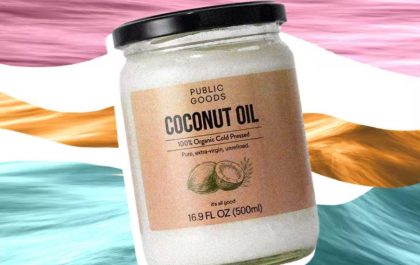Macronutrients are nutrients in foods that the body needs in large amounts, such as carbohydrates, fats, and proteins. These nutrients provide energy and maintain the functioning of bodily systems.
Table of Contents
What Are Macronutrients?
Nutrients in food are divided into two groups, macronutrients and micronutrients, based on the body’s needs.
It needs a lot of macronutrients. For example, carbohydrates, fats and proteins are macronutrients. However, micronutrients are required in small amounts, especially vitamins and minerals.
Macronutrients provide energy to the body. But they are also crucial for many other things, such as protecting the body from cold temperatures, keeping every cell in the body functioning, and feeding the gut microbiome.
What Are Carbohydrates?
Carbohydrates are molecules that the body uses as its primary source of energy. Therefore, they are essential to a healthy diet.
Carbohydrates provide the body with glucose, which the cells use as fuel. Some complex carbohydrates, like fibre, also nourish the gut microbiome.
These molecules can be found in various foods, but not all sources are the same regarding health.
Dietary carbohydrates come in three primary categories and serve various physiological purposes in the body.
1. Sugar
Sugars such as glucose, fructose and sucrose are simple carbohydrate molecules. They are easily absorbed by cells around the body, which they use as fuel.
2. Starch
Starch is a complex carbohydrate molecule. It takes longer to digest because the body has to break it down into simple sugars before cells can use it for energy. This means that the energy from the starch is released into the blood on a more regular basis.
3. Fiber
A form of carbohydrate molecule called fibre is indigestible to humans. Different molecular kinds are found in fibres.
Your gut microbes break down fibre into short-chain fatty acids (SCFAs). They are essential for health, help regulate blood sugar, fats and appetite, and nourish your microbiome to boost your immune system.
High-quality carbohydrate sources include:
Choosing high-quality carbs that nourish you and your gut microbiome is essential for your health.
- Whole grains
- Fruit
- Vegetable
- Legumes (pulses and legumes)
- Nuts and seeds
What Is Fat?
Fat is another critical nutrient necessary for good health. Fat molecules called triglycerides contain glycerol, sugar alcohol, and three fatty acids.
Like carbohydrates, fats can provide energy to the body. It also acts as a heat insulator, is necessary to absorb fat-soluble vitamins A, D, E, and K, and is a source of essential fatty acids such as omega-3s.
Omega-3 fatty acids are essential for healthy brain function, but the body cannot manufacture them independently. Fat is necessary for every cell in the body to operate correctly.
Dietary fat comes in three primary categories.
1. Unsaturated fats
At room temperature, unsaturated fats are liquid and are typically regarded as good fats. Unsaturated fats come in two varieties: monounsaturated fats and polyunsaturated fats. A particular kind of polyunsaturated fat is omega-3.
2. Saturated Fat
At room temperature, saturated fats, frequently present in animal products and some plants, are solid. Saturated fats have long been linked to increased heart disease, inflammation, and harmful cholesterol levels.
3. Trans Fat
Vegetable oils are processed to create artificial trans fats. Also known as oil, that has partial hydrogenation.
Beef and dairy fats both include trace levels of naturally occurring trans fats.
Consumption of trans fats has been linked to health complications such as unhealthy cholesterol levels, increased inflammation and insulin resistance.
Sources of healthy fats include:
How your body reacts to fat is unique and depends on factors such as your gut microbiota, age, weight, and whether you have a chronic disease.
- Nuts
- Plant
- Vegetable oil
- Oily fish like trout and mackerel
- Lawyer
- Moderate amounts of whole dairy products
Describe Protein.
Long chains of amino acids make up the molecules known as proteins. They perform several functions in your body and are crucial for your health.
Proteins called enzymes are responsible for the chemical processes in cells and tissues. In addition, proteins are necessary for synthesising substances, including neurotransmitters, hormones, and antibodies.
Like carbohydrates and fats, protein can provide energy, but the best use of protein is to build and repair cells. This is especially important after exercise.
There are two types of protein sources.
1. Complete Protein
Complete proteins come primarily from animal sources like beef, poultry, and fish and include all nine necessary amino acids. There are several plant proteins as well, including quinoa and soy.
2. Incomplete Protein
Proteins that are incomplete lack one or more necessary amino acids. This covers the majority of plant foods, such as whole grains, beans, legumes, seeds, and nuts. You must consume various meals to obtain all the required amino acids.
Best sources of protein:
As with carbs and fats, a high-quality, minimally processed source of protein is your best bet.
- Tofu
- Bean
- Egg
- Nuts and seeds
- Legumes
- Dairy
- Fish
- Tempeh
Conclusion
Macronutrients (carbohydrates, fats and proteins) are nutrients found in food that the body needs in large quantities. These nutrients provide energy and are necessary for many bodily functions and movements.
For best results, focus on eating an overall high-quality diet rather than tracking your intake of specific amounts of macronutrients.
Each person has a unique reaction to food. Once you discover your individual needs, you can eat for your health instead of trying to follow general, comprehensive dietary guidelines.
Related posts
Featured Posts
How to Make Coconut Oil for Hair? – Knows, Benefits, Risks, And More
Coconut Oil for Hair – Need to Know About Using Coconut Oil for Your Hair coconut oil for hair may…
These are the Top Vitamins for Hair Loss
These are the Top Vitamins for Hair Loss – Vitamins play a vital role in the functioning of the body….


